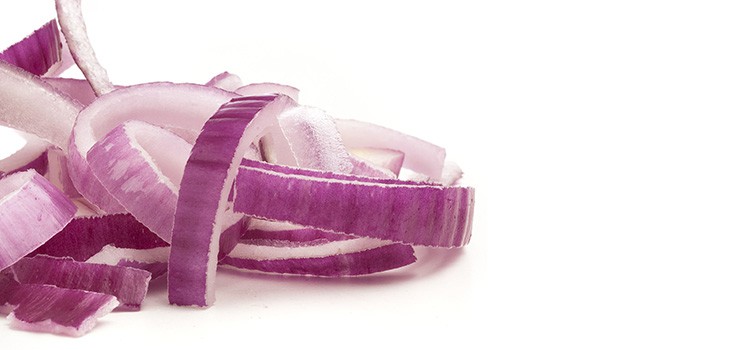Onions: Harnessing Powerful Anti-Inflammatory Properties

In the world of health foods and nutrition, some vegetables are instantly recognized for the wealth of health benefits they offer. If you were asked to name the healthiest foods, you would likely name things like kale, spinach, garlic, ginger, and the like. Another healthful food, onions have been pegged as flavorful and a staple in many dishes, but despite their overwhelming popularity, few know about their many health benefits. One such health benefit of onions revolves around their anti-inflammatory properties.
Anti-Inflammatory Powers of Onions
What really produces the anti-inflammatory properties in onions are antioxidant phytonutrients. Compounds like quercetin and anthocyanin work to prevent the oxidation of fatty acids. They also act to reduce inflammation throughout the body.
Quercetin, according to Arthritis Today, has been shown to inhibit or stop leukotrines, histamines, and prostaglandins (inflammation causers) in both rheumatoid and osteo-arthritis. Additionally, quercetin has been recognized for inhibiting the inflammatory enzyme 5-lipoxygenase, which helps prevent inflammation.
Another Argentinian study on rats showed that both garlic and onions have the ability to reduce inflammation in animals that had developed insulin resistance after a steady diet of fructose. According to those researchers:
“These results highlight the importance of the consumption of natural vegetables and also contribute to the understanding of the beneficial effects of functional foods in the prevention of METS (metabolic syndrome).”
So, how can you reap these anti-inflammatory benefits?
Reaping Onion’s Anti-Inflammatory Benefits
First, seek out pungent red or yellow onions. The onions that have the strongest smells are those with the greatest benefits. Red onions contain more antioxidants and total flavonoids than white and yellow onions.
Next, don’t be so quick to discard so many outer layers of the onion. Once you get the paper-thin skin off, keep the others. The outer layers contain the highest concentrations of antioxidants. By over-peeling the onion, you could shed off about 20% of the vegetable’s quercetin and 75% of its anthocyanins.
Also, be careful in your food preparation. When you use onion in a soup, for instance, the quercetin doesn’t disappear. It does, however, leave the onion and is transferred to the broth. So, keep the broth and drink it up!
Although there are supplements that claim to offer similar benefits of quercetin, the quality derived directly from the onion is far superior. So, save your money and buy a bag of onions rather than a bottle of pills. Try having a serving of onions each day.

Read somewhere, can’t recall, but makes sense…the outter peeling that we don’t consume is filled with all of the good stuff too. They suggested if one’s is cooking with liquid (soup etc.) throw the peeling in the water for a few minutes.